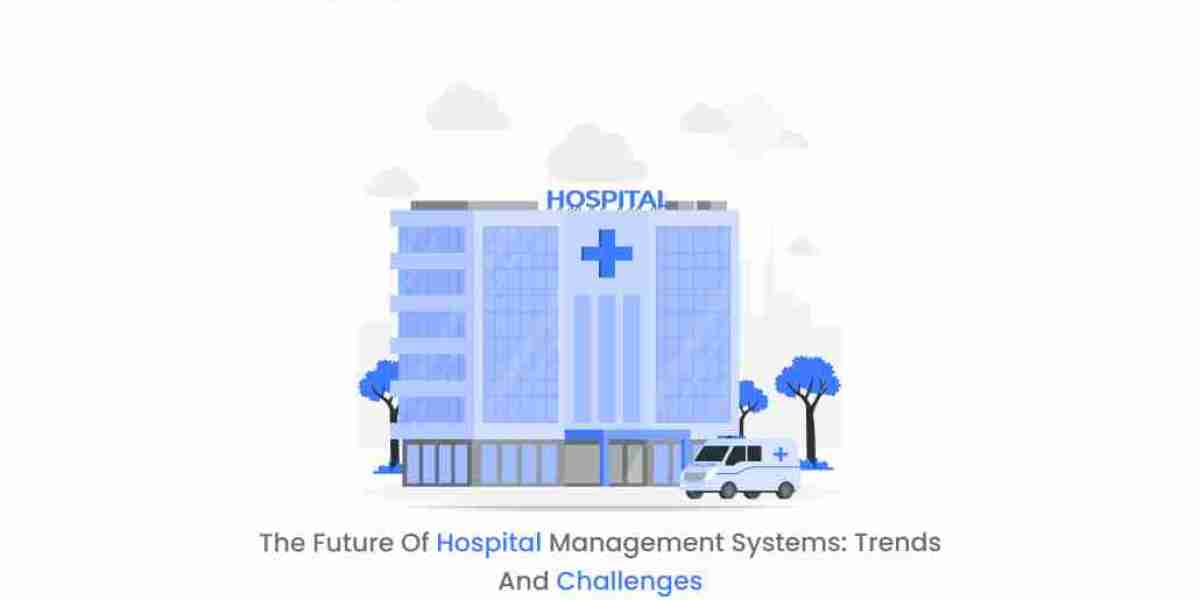The fast evolving healthcare industry relies on Hospital Management Systems (HMS) as a pillar of efficient healthcare service delivery. They are also called Hospital Information Management System, and they are necessary for enhancing patient care, simplifying administrative procedures, and improving overall operational efficiency in health facilities. What do the future developments of these applications depend on?
Trends Shaping the Future of Hospital Management Systems
Integration of Machine Learning (ML) and Artificial Intelligence (AI): Hospital Hospital Management System modules when integrated with ML and AI technologies, could revolutionize how healthcare is administered. These can help predict how many resources should be allocated for different uses at a time, predict the number of patients that will come at any given moment, and identify bottlenecks. Similarly, clinic management systems using ML algorithms will aid medical doctors in prescribing personalized therapy programs as well as making accurate diagnoses.
Interoperability and Data Exchange: In the age of linked healthcare systems, interoperability has emerged as a key trend. Hospital Management Systems need to share data with Laboratory Systems, Electronic Health Records (EHRs) and other healthcare applications to ensure complete patient care. By using standardized protocols and APIs, health care providers can easily transmit data thereby ensuring secure access to patients’ information on multiple platforms.
Mobile and Cloud Solutions: Hospital management systems online are embracing mobile and cloud-based solutions because of the widespread adoption of mobile devices and cloud computing. This enhances productivity by empowering medical practitioners access to patient’s records, making appointments, and communicating with colleagues while in transit. Furthermore, cloud-based hospital management systems are preferred by hospitals of all sizes due to their scalability, cost-effectiveness, and enhanced data security.
Emphasis on Patient Engagement: Patient-centric care is a top priority for Hospital Management Systems, which means that they prioritize features that enhance patient engagement. That being said, patients can self-manage their health through patient portals, online appointment scheduling as well as telemedicine components. In addition, proactive communication approaches and individualized health records improve patient satisfaction and thereby improve patient-provider relationships and health outcomes.
Enhanced Security Measures: Recently, Hospital Management Systems have taken a different approach by making cybersecurity their topmost priority because of the overall change in medical data digitization. It is necessary to implement strong security measures like encryption, access limits and audit trails to safeguard sensitive information from cyber-attacks on patients. Additionally, complying with laws such as HIPAA ensures that the privacy as well as accuracy of the patients’ data is maintained thereby building confidence between healthcare providers and patients.
Challenges Ahead for Hospital Management Systems
Legacy System Integration: Many medical establishments keep using old Hospital Management Systems that are not scalable, or interoperable. It is hard to marry these systems with modern technology since it needs careful planning, a lot of money, and skills. When migrating legacy systems into new ones, projects have to deal with such challenges as personnel training, workflow streamlining, and data migration to ensure a smooth transition without compromising patient care.
Data Privacy and Compliance: Hospital Management Systems can generate and store huge amounts of confidential patient data; thus adherence to privacy standards is very important. Healthcare organizations need to navigate complex regulatory environments like GDPR or HIPAA to protect patients’ rights and avoid getting bankruptcy charges. For instance, maintaining compliance and safeguarding data requires the adoption of strict rules on data privacy, conducting regular audits, and funding staff training programs.
Cost and Resource Constraints: Hospital Management Systems may have many benefits, but their implementation and maintenance can be costly for healthcare organizations, particularly in resource-constrained settings. The initial installation costs of the installation services, software licensing, and hardware are usually high and there is a further burden from the recurrent maintenance expenditure. Managers of healthcare institutions need to carefully assess the return on investment before investing heavily in Hospital Management Systems. They should also look at the cheaper substitutes.
Interoperability Challenges: Though they try to facilitate interoperability, it has been difficult for Hospital Management Systems to transfer data smoothly among third-party applications and other systems. Data silos and inefficiencies are a result of vendor lock-in techniques, diverse system designs as well as differences between data standards hence making interoperability efforts fail. To overcome these challenges and realize the true potentials of integrated healthcare systems requires concerted efforts such as creating standardized interfaces as well as interoperability frameworks.
Conclusion
As we navigate the intricacies of today’s healthcare system, Hospital Management Systems will continue to be important for the future of healthcare delivery. If health institutions can adopt emerging technologies, prioritize patient care and deal with matters such as interoperability, and data privacy, then the Hospital Management System may have a huge role to play in improving patient outcomes, operational efficiency, and driving innovations in healthcare delivery. Although it will surely be challenging and mysterious to handle the future of healthcare, companies dealing with health may use Hospital Management Systems to develop a more sustainable and accessible health ecosystem that is more centered on patients through investments in appropriate strategies and technologies.



